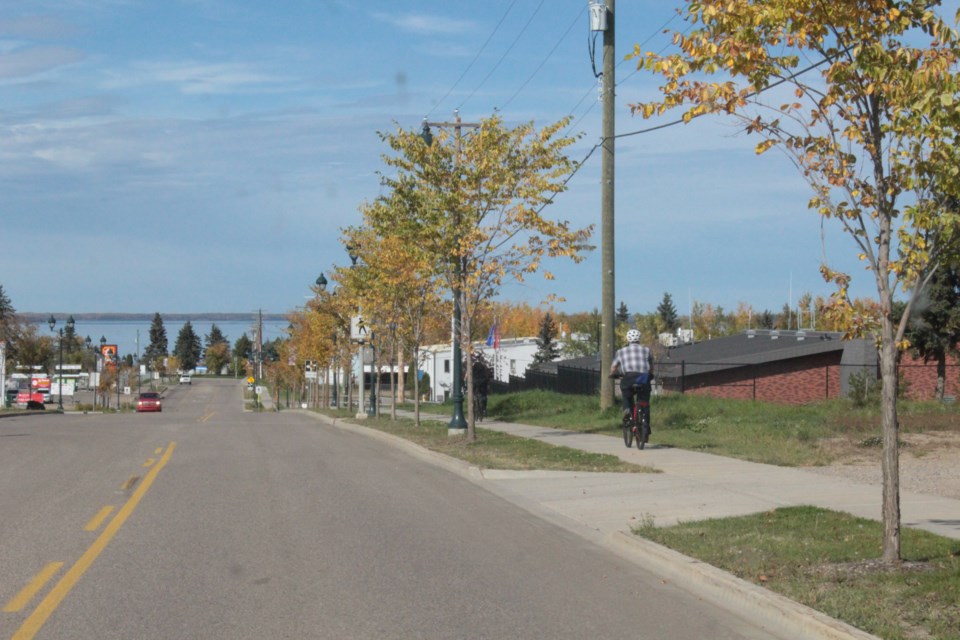LAC LA BICHE - For most Lac La Biche County ratepayers, 2020 has seen some elevated stresses, but for the most part, it won't see elevated taxes. This year's tax bylaw will even offer a break on the deadline to pay taxes.
Lac La Biche County ratepayers will have until July 31 to make this year's municipal tax payments, a month more than normal, after councillors passed the year's tax bylaw on Tuesday, and also approved a deferral for payment times. The deadline extension is part of the provincial government's changes to the education tax portion of the municipal collection. Provincial officials have told municipalities that the education portion of tax bills — which are collected by municipalities, and normally paid back to the province by the end of September — will not be collected from municipalities until December. Lac La Biche County councillors passed some of that time extension to its ratepayers.
Councillors also passed along what is estimated to be a tax bylaw that will see minimal change on rates over last year.
With three of the council's nine members voting against the bylaw during its formal approval process on Tuesday, the 2020 Tax Rate Bylaw was approved. The only change in this year's tax rates over last year is a four per cent increase to the residential and farmland mill rate. For 2020, the municipal residential mill rate will go from 3 to 3.12 and the rural non-residential mill rate (industrial) will remain at 18.3647. Urban business mill rates will also stay where they were last year at 10. The mill rate formula is based on a mill representing the value associated with every $1,000 of property assessment. If a downtown Plamondon business, for example, has an assessed value of $500,000 and a municipal mill rate of 10, municipal taxes would equal $5,000 a year.
RELATED: SEE EXAMPLES OF ASSESSMENT AND NEW RATES FROM PREVIOUS STORY.
This year's tax collection will see a projected $5 million increase to the municipality's budgeted $63.5 million tax revenues for 2020. But only one per cent of that $5 million will come from the approved four percent increase to the tax rate on residential and farmland properties. For most residential taxpayers, the increased mill rate will make little change to the actual dollar figure of their tax notice, as some lower property value assessments paired with reductions in other tax levies from the Greatern North Foundation and Alberta Education will keep payments in check. The majority of $5 million revenue increases for 2020 will come from changes to assessed property values in all four categories of taxation within the specialized municipality — especially from the rural industrial tax base.
Bringing industrial rates in line with regulations
While council chose to hold the line on tax rates in the rural and urban non-residential sectors, the three who voiced their opposition to the bylaw — Mayor Omer Moghrabi, Deputy Mayor Charlyn Moore and councillor George L'Heureux — said they had wanted to see lower rates for commercial and industry reduced. Moore said in a challenging economic time, it would have been nice to show a little consideration. She said even a one per cent reduction in municipal rates could have sent a positive message to the sector that makes up more than 85 per cent of the region's tax revenues. A one percent change in the municipal mill rate to industries would have meant a reduction of around $580,000 — something that county senior administrator Dan Small noted to council during deliberations.
By comparison, current residential tax rates would have to be increased by 45 per cent to see that kind of financial increase.
"Even a little tweak of a number is a lot, a lot of money," Small said about the industrial rates.
Compounding to the industrial tax rate issues, is an ongoing lawsuit staged by several large industrial companies, including Canadian Natural Resources Ltd.,seeking to have their taxes reduced in all jurisdictions they do business. For the last three years, the provincial government has also continued with legislation forcing 11 municipalities, including Lac La Biche County, to get down to a tax difference of no more than a 5:1 ratio between residential and industrial rates. The 2020 tax rates puts the difference between Lac La Biche County residential rates and industry at 5.88:1.
Small says the county's new rate puts them "somewhere in the middle" of the 11 municipalities, with the lowest being at 4.99 and the highest carrying a ratio that shows industrial rates eleven and a half times higher than residential rates. When Lac La Biche County was first allowed to levy differing rates for industrial taxpayers, the ratio was as high as 7.35:1
The ratio compliance was a big part of the tax rate discussions, with Mayor Moghrabi saying senior levels of government are watching very closely. He's pleased to see a reduction — even a slight one.
"We are closer to getting our tax ratio to comply with provincial regulations, while making sure that we can still provide the services and projects that our residents rely on,” says Moghrabi, adding that concerns over the COVID-19 virus have also played into the tax discussions. “Although the pandemic has presented economic challenges for everyone, Council believes that maintaining our service levels is important to coming out of this crisis a stronger municipality.”
Lac La Biche County officials say tax notices will be mailed out in the coming days. Taxes are payable online or in-person (when County offices re-open to the public). Penalties will apply for all payments received after July 31, 2020.




